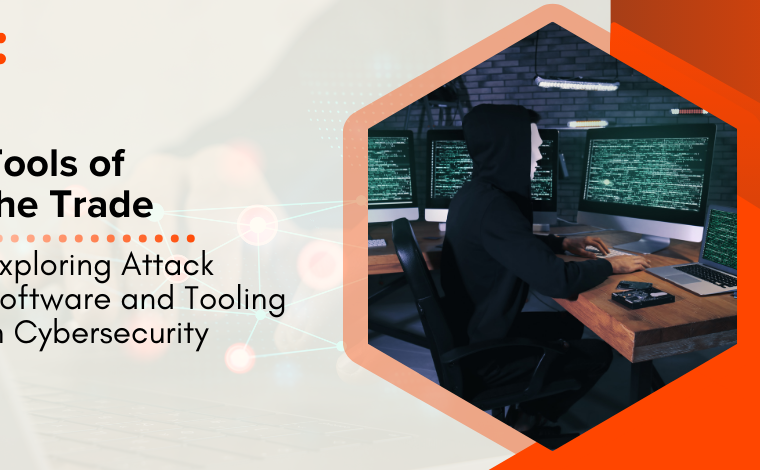Top 4 Tips on How to Become a Cyber Security Analyst

Stay Informed With Our Weekly Newsletter
Receive crucial updates on the ever-evolving landscape of technology and innovation.
Cyber security is a rapidly growing field with a high demand for skilled professionals. As the digital world continues to evolve, so does the need for individuals who can protect sensitive information and prevent cyber threats.
Becoming a cyber security analyst might be your perfect career path if you have a passion for technology and a keen interest in safeguarding data. We will explore the top 4 tips for becoming a cyber security analyst in The United States.
Understanding the role of a cyber security analyst

Before embarking on your journey to become a cyber security analyst, it is essential to understand the role and responsibilities of this profession. A cyber security analyst is critical in safeguarding an organization’s computer systems from potential threats and attacks.
The frontline defenders identify and mitigate risks and vulnerabilities, ensuring sensitive information’s confidentiality, integrity, and availability.
As technology advances, the need for cyber security analysts has become more crucial than ever. With increasing cyber threats, organizations rely on these professionals to protect their digital assets and maintain a secure environment.
Key responsibilities and duties
A cyber security analyst is tasked with many responsibilities to protect an organization’s digital infrastructure. One of their primary duties is to monitor networks for any signs of security breaches or unauthorized access attempts.
They use advanced tools and technologies to detect and analyze potential threats, allowing them to respond promptly and effectively.
When a security incident occurs, cyber security analysts play a vital role in investigating and analyzing the event. They gather evidence, conduct forensic examinations, and determine the extent of the breach.
This information is crucial for developing strategies to prevent future attacks and improve the organization’s overall security posture.
Cyber security analysts are responsible for implementing security measures to mitigate risks. They collaborate with other IT professionals to develop and enforce security policies, configure firewalls, and establish encryption protocols.
By staying updated with the latest security trends and technologies, they ensure that the organization’s systems are protected against emerging threats.
Required skills and knowledge
A cyber security analyst must possess a strong information technology foundation to excel in this field. It is crucial to have knowledge of networking protocols, operating systems, and programming languages.
Understanding how different systems and technologies interact allows analysts to identify potential vulnerabilities and design effective security solutions.
Analytical thinking and problem-solving skills are essential qualities for a cyber security analyst. They must be able to analyze complex data, identify patterns, and make informed decisions quickly.
Thinking critically and creatively is crucial when dealing with sophisticated cyber threats.
Cyber security analysts must be able to work under pressure and handle stressful situations. Cyber attacks can occur anytime, and analysts must respond swiftly to minimize the impact.
Their ability to remain calm and focused during high-pressure situations is vital in effectively managing security incidents.
Strong communication and collaboration skills are essential for cyber security analysts. They must communicate their findings and recommendations effectively to non-technical stakeholders, such as executives and employees.
Translating technical jargon into understandable terms ensures that everyone understands the importance of security measures and their role in maintaining a secure environment.
4 top tips on how to become a cyber security analyst

1. Equip yourself with knowledge
While higher education is not always a prerequisite for entering the cyber security field, pursuing relevant degree programs can significantly enhance your knowledge and career prospects.
When it comes to starting a career in cyber security, having a strong educational background can provide you with a solid foundation and help you stand out in a competitive job market.
Many universities and institutions offer specialized degree programs in cyber security designed to equip students with the necessary skills and knowledge to excel in this field.
For example, the cyber security program at the Institute of Data includes practical training, industry certification, and job placement support to excel in your career.
2. Gain practical experience
While education is vital, gaining hands-on experience is equally important in the cyber security field. Practical experience allows you to apply theoretical knowledge to real-world scenarios and enhances your problem-solving abilities.
Internships and entry-level jobs
Securing internships or entry-level positions in cyber security firms, government agencies, or IT departments can provide invaluable industry exposure. These opportunities allow you to work alongside experienced professionals, gain practical skills, and build a strong network of contacts.
Volunteering and networking opportunities
Consider volunteering your time and skills to nonprofit organizations or community groups focusing on cyber security. This allows you to contribute back to society and provides opportunities to network with professionals and gain practical experience in a supportive environment.
3. Enhance your skills: Advanced training and certifications

To stay competitive in the ever-evolving field of cyber security, continuous learning and skill development are vital.
Popular cyber security certifications
In addition to foundational certifications, advanced cyber security certifications can help you specialize in specific areas of cyber security. Some popular choices include Certified Information Systems Auditor (CISA), Offensive Security Certified Professional (OSCP), and Certified Cloud Security Professional (CCSP).
Continuous learning and skill development
Stay updated with industry trends, cyber threats, and emerging technologies. Engage in online courses, attend workshops, and participate in webinars to acquire new skills and expand your knowledge base.
4. Build a strong professional network
A strong professional network can open doors to new opportunities and provide valuable insights into the cyber security industry.
Joining professional associations
Consider joining professional associations like the Cybersecurity & Infrastructure Security Agency (CISA). These organizations offer networking events, conferences, and training programs to help you connect with industry professionals and stay updated with the latest advancements.
Attending industry conferences and events
Participating in industry conferences and events provides an excellent platform to network with like-minded individuals and gain exposure to cutting-edge technologies and practices. Take advantage of these opportunities to expand your professional network and stay informed about industry advancements.
Conclusion
By following these top 4 tips, you can set yourself on the path to becoming a successful cyber security analyst in Australia.
Remember, this field continually evolves, so stay curious, embrace continuous learning, and adapt to the ever-changing cyber landscape. Good luck on your journey to becoming a cyber security analyst!
Ready to jumpstart your career in cyber security? Whether you’re an IT professional or new to the field, our Cyber Security program at the Institute of Data is led by top industry experts, ensuring you get the most up-to-date and practical knowledge to help you secure your dream job.
We also offer free career consultations with our local team if you’d like to discuss your options.




